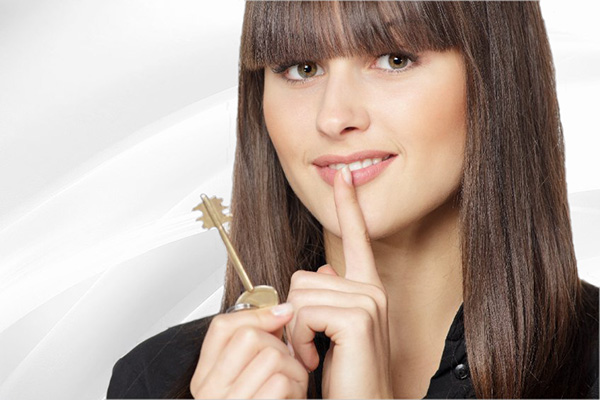emotional responses
Anger Release Empowers The Empath
 As an empath, I’ve been personally and professionally targeted by others many times in my life. But I am not the only one. These challenges are common among the highly sensitive. Why do sensitives tend to experience so much bullying? I believe we tend to attract it because we are called to support others in balancing their emotions. We are meant to use our gift of empathy to help heal others.
As an empath, I’ve been personally and professionally targeted by others many times in my life. But I am not the only one. These challenges are common among the highly sensitive. Why do sensitives tend to experience so much bullying? I believe we tend to attract it because we are called to support others in balancing their emotions. We are meant to use our gift of empathy to help heal others.
But at times the empath becomes overwhelmed. She is only human and sometimes also needs to vent. Most of all the empath must learn to release anger and other negative emotion she may experience as a result of the injustice, callousness and even cruelty she often tends to suffer.
Unresolved anger is one of the underlying causes for many addictions and dysfunctional behaviors. Anger that leads to a sense of entitlement, and from entitlement comes dissolved hopes and dreams.
If we learn to surrender our egos and release entitlement, then we find the hopes and dreams we’ve lost return to us. Peace is the ultimate foundation of prosperity and well-being. Having peaceful thoughts and kind intentions for everyone invites abundance into our lives.
This doesn’t mean we have to be a ‘doormat’ for others. If we are truly at peace, our higher vibration commands a natural boundary and the Universe fills in the energetic gaps.
For example, while dealing with a difficult person, someone else may come along to interrupt the conversation with some humor. The Universal Spirit naturally intercedes on our behalf once we set good intentions for everyone by releasing our anger and resentment.
Quick Ways To Pick Yourself Up
 We all have bad days. We get disappointing news or have an unpleasant interaction with someone. We all encounter setbacks and dark moments from time to time, as we journey through physical life. It’s part of the human experience.
We all have bad days. We get disappointing news or have an unpleasant interaction with someone. We all encounter setbacks and dark moments from time to time, as we journey through physical life. It’s part of the human experience.
These negative events may seem unfortunate, or even unnecessary when they occur, but they actually serve to create balance in our life. Without these contrasts we would never appreciate all the good things.
The important thing, however, is to not dwell on the negativity or misery, but to bounce back into alignment with our truth and the abundance and healing power of Spirit as soon as possible.
Some of my favorite ways to quickly pick myself up when I am feeling down include:
Inspirational Words
I love Unity Church’s Daily Word for this. I carry it around with me in my purse for just such occasions. You can also get it as an app for a smartphone. The short, daily reminders feature uplifting affirmations and a brief paragraph or two of inspirational writing on the theme for the day. I always find that they contain just what I needed to hear at that moment to help me gain a new, more positive outlook.
Less Is More When They ‘Know It All’
 Some people just don’t like to hear the truth. Do you also know people who seem to avoid you, because they know you’re potentially going to say it like it is? They recognize you as a person who speaks the truth based on plain common sense.
Some people just don’t like to hear the truth. Do you also know people who seem to avoid you, because they know you’re potentially going to say it like it is? They recognize you as a person who speaks the truth based on plain common sense.
I have known people who have very little common sense and really do not want help, advice, guidance or direction from anyone. They know it all. That is just the way it is with them. The ego can make us not want to take honest advice, and thus we do not have the advantage of learning and growing with help from others who may have more experience or wisdom. I have learned the fine art of silence when I am around these people. I feel awkward, because those who know what I do for a living realize that they are pretty much transparent in my eyes, when they are around me.
I especially have a very hard time when I am around certain people, because you see the damage they are doing to themselves and others. You want to share a better way with them, but you have to let them follow their own path. It may seem like an unnecessary struggle for them, but maybe they are supposed to go through all that pain and heartache. It may be a part of their unique spiritual journey towards soul growth.
Protect your energy by knowing when to practice the art of silence with people who ‘know it all.’ You can’t resonate with everyone, and it is especially pointless if they don’t appreciate it. Why use up all that precious energy if they are only going to be disrespectful?
Your Life Reflects Your Inner Being
 Sometimes people have many issues with others in their life while they neglect to acknowledge that many of these problems are merely a mirror reflection of their inner being. This denial of personal responsibility is often the main cause of conflicts and drama in many people’s lives.
Sometimes people have many issues with others in their life while they neglect to acknowledge that many of these problems are merely a mirror reflection of their inner being. This denial of personal responsibility is often the main cause of conflicts and drama in many people’s lives.
Everyone faces challenges in life. It is how these challenges are managed and released that gives one inner strength and peace. The answers are always within. But when we refuse to go within and face our inner truths, while instead venting our frustration, anger, envy, fear, and other pent-up negative emotions, it just brings so much more of the same crashing down on us.
That person you see with a huge smile on her face…her life is not necessarily all ‘sunshine and roses.’ Maybe she has just chosen to live with joy and gratitude in the present moment, instead of dwelling in the past or obsessing over the future. Maybe she has chosen to release that person or circumstance that had caused her pain or grief, and have chosen to move forward in her life with a knowing that bigger, better blessings are awaiting her on the other side of the pain.
The concept is simple, but the work is difficult. I am just as guilty of this human shortcoming as the next person. In my own life, I have also held onto things for so long that it stunted my spiritual, emotional, romantic, and financial growth. I held on to the resentment, bitterness, and vengeful thoughts, and it stunted me to the point that I found myself stuck in a very dark state of mind for a long, long time.
However, once I realized that both my psychic reading work and energy healing practice are absolutely dependent on clarity, love, compassion, and positive energy, I became determined to find ways to release the past and move forward, without any ill will towards another. Was it easy to find my way back to my inner truth and higher self? No, it was not. Was it worth the effort? Definitely!
Honor Your True Self Without The Drama
 Many of people spend a good portion of their lives trying to be who they think others expect them to be. Although it is important for our own safety and peace of mind to conform and abide by society’s customs and codes of conduct, it is also imperative that we feel free to authentically express ourselves – as long as it is not detrimental to the well-being of others.
Many of people spend a good portion of their lives trying to be who they think others expect them to be. Although it is important for our own safety and peace of mind to conform and abide by society’s customs and codes of conduct, it is also imperative that we feel free to authentically express ourselves – as long as it is not detrimental to the well-being of others.
These days it can be treacherous to speak your mind or express your true feelings in just about any context, but the most troublesome of places to do this is on social media platforms, where faceless strangers often attack each other mercilessly, and at times for no apparent reason.
Instead of exposing oneself publicly to the vitriol and ill-conceived opinions of random strangers, it is best to be true to ourselves within our personal circle of influence. Being yourself and living and authentic life does not require us to announce our true thoughts and innermost feelings to the entire world.
Of course, expressing your truth to those closest to us can be equally difficult. One key to successfully communicating is to truly listen with respect and consideration to the views of others. Often, we do not really hear what is being said, because we are frantically thinking of our own response to what we assume they are saying.
Actively listening to someone explaining their position can be a real test of patience sometimes, but it usually pays off in the end by way of mutual understanding, conflict resolution, or compromise.
Disagreeing without hostility and aggression is an art in itself. The world we currently live in can be a tinder box at times, with people overreacting to even the smallest perceived slight. We cannot control the beliefs, words and actions of others, but we can certainly manage our own.
The Romantic Challenges Of Being An Empath
 I frequently do readings for clients who are discovering their empathic abilities, as well as awakened empaths who are still working on their self-empowerment. The majority of empaths that I have worked with over the years have all been in very high-stress romantic situations that do nothing but magnify what these highly sensitive people are already experiencing. While this is no doubt confusing, frightening and intense for the empath, one must consider the fact that it also greatly impacts their partners.
I frequently do readings for clients who are discovering their empathic abilities, as well as awakened empaths who are still working on their self-empowerment. The majority of empaths that I have worked with over the years have all been in very high-stress romantic situations that do nothing but magnify what these highly sensitive people are already experiencing. While this is no doubt confusing, frightening and intense for the empath, one must consider the fact that it also greatly impacts their partners.
An empath a highly sensitive person who is very aware of the feelings, moods and motivations of other people and are deeply affected by the energies around them. This is experienced by the empath in many ways, including as physical sensations, moods, and emotions, as well as an inner knowing of what lies beneath the surface of other people’s words and actions. An empath has the ‘psychic radar’ to hone in intuitively on the truth of a person or situation.
Relationships, especially romantic ones, can therefore be a nightmare for empaths, and their partners. While their partner may be saying one thing, the empath ‘knows’ or ‘feels’ something different, and can sense if their partner is being dishonest or deceitful. While this can be useful at times to protect the empath from pursuing relationships with the wrong kind of person, it can also be very damaging and destructive to a potentially happy, healthy relationship with loving partner.
It can be very disconcerting and intimidating for the romantic partner of an empath to feel so constantly questioned, judged and exposed. I get many calls from empaths who are deep in an argument stemming from their partner’s refusal to come clean about what is really going on, or what they are truly feeling. The more the partner protests, the more the empath pushes and prods, leading the partner to shut down, withdraw, or disconnect completely.
